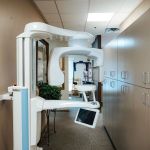Why Oral Hygiene Matters More as We Age
As people grow older, maintaining good oral hygiene becomes even more critical. Aging naturally brings changes to the body, and the mouth is no exception. Older adults often face challenges such as dry mouth, receding gums, and an increased risk of dental diseases, all of which make oral care more complex yet essential. Good oral hygiene is not just about keeping teeth clean; it plays a vital role in preventing infections, preserving oral function, and supporting overall health and quality of life.
The link between oral health and systemic health has been well documented. In older adults, poor oral hygiene is associated with increased risks of cardiovascular disease, diabetes complications, respiratory infections, and even cognitive decline. This underscores why oral hygiene should be a priority for seniors and caregivers alike.
Common Oral Health Challenges Faced by Older Adults
1. Gum Disease and Tooth Loss
Periodontal disease is a common problem among seniors and one of the leading causes of tooth loss. Over time, plaque buildup hardens into tartar, irritating the gums and leading to inflammation and infection. Without proper care, this infection can destroy the supporting bone and tissue around teeth. Maintaining thorough brushing, flossing, and regular dental visits can prevent or control gum disease effectively.
2. Dry Mouth (Xerostomia)
Many older adults experience dry mouth, often as a side effect of medications or medical conditions. Saliva plays an important role in neutralizing acids, washing away food particles, and preventing bacterial growth. Reduced saliva increases the risk of tooth decay, oral infections, and difficulty swallowing. Using moisturizing rinses, staying hydrated, and avoiding tobacco or alcohol can help alleviate dry mouth symptoms.
3. Tooth Decay and Root Cavities
Even though tooth decay is often thought of as a childhood issue, seniors are highly susceptible, particularly to root decay. Receding gums expose sensitive root surfaces that are more vulnerable to cavities. Combined with dry mouth, this significantly raises the risk. Regular dental cleanings and fluoride treatments can strengthen tooth enamel and help prevent decay.
How Good Oral Hygiene Supports Overall Health
1. Preventing Systemic Infections
The mouth is a gateway to the body. Bacteria from poor oral hygiene can enter the bloodstream and contribute to systemic infections. Research shows a strong connection between oral bacteria and cardiovascular problems such as heart attacks and strokes, particularly in seniors whose immune defenses may be weaker.
2. Managing Chronic Diseases
Chronic diseases like diabetes are prevalent in older populations and can worsen with poor oral health. Conversely, uncontrolled gum disease can impair blood sugar control, creating a dangerous cycle. Maintaining good oral hygiene helps break this cycle, reducing complications and improving disease management.
3. Enhancing Nutrition and Quality of Life
Healthy teeth and gums enable proper chewing and swallowing, which are essential for good nutrition. Pain or discomfort from dental issues can limit food choices, leading to nutritional deficiencies. Maintaining oral health preserves the ability to enjoy a varied diet, enhancing overall wellbeing.
Practical Tips for Older Adults to Maintain Good Oral Hygiene
1. Establish a Consistent Oral Care Routine
Brushing twice daily with a soft-bristled toothbrush and fluoride toothpaste remains foundational. Flossing daily helps remove plaque from between teeth where brushing can’t reach. If manual dexterity is a challenge, electric toothbrushes and floss holders can improve effectiveness.
2. Regular Dental Check-Ups
Scheduling dental visits every six months allows for professional cleaning and early detection of problems. Dentists can provide personalized advice and treatments tailored to older adults’ needs.
3. Address Dry Mouth and Medication Effects
Discuss any dry mouth symptoms with your healthcare provider. They may adjust medications or recommend saliva substitutes and lifestyle changes to keep your mouth moist and comfortable.
4. Maintain a Balanced Diet
Avoid excessive sugary foods and beverages, which fuel decay-causing bacteria. Eating fiber-rich fruits, vegetables, and drinking plenty of water supports saliva production and oral health.
Stories Highlighting the Importance of Senior Oral Care
Take Helen, a 72-year-old retiree who neglected her oral hygiene after losing some teeth. She developed gum disease that caused discomfort and eventually led to more tooth loss, affecting her confidence and diet. After visiting her dentist and committing to a new care routine, Helen noticed improved comfort and renewed motivation to maintain her oral health.
Another story is about James, an 80-year-old with diabetes who worked closely with his dentist to control gum disease. This cooperation helped stabilize his blood sugar and improved his overall health. James’s experience illustrates how oral hygiene and systemic health are deeply intertwined.
Encouraging Older Adults to Prioritize Oral Health
Aging comes with many adjustments, but maintaining good oral hygiene should never be compromised. With the right knowledge, tools, and professional support, older adults can enjoy healthy smiles and better quality of life well into their golden years.
For those seeking guidance or tailored oral health services, Dentistry Toothtruth offers expert care designed specifically for older adults. Their specialized programs help seniors maintain optimal oral health, addressing unique challenges with compassion and expertise.







 Genesis Dental of Taylorsville4.0 (842 review)
Genesis Dental of Taylorsville4.0 (842 review) Bloomington Southside Dental Care3.0 (26 review)
Bloomington Southside Dental Care3.0 (26 review) McDowell Dentistry of Goodyear4.0 (279 review)
McDowell Dentistry of Goodyear4.0 (279 review) Dana Orthodontics4.0 (352 review)
Dana Orthodontics4.0 (352 review) COMPREHENSIVE DENTISTRY PC4.0 (18 review)
COMPREHENSIVE DENTISTRY PC4.0 (18 review) Dr. Eric Chu4.0 (18 review)
Dr. Eric Chu4.0 (18 review) The Importance of Oral Health Education During Pregnancy for a Healthy Pregnancy
The Importance of Oral Health Education During Pregnancy for a Healthy Pregnancy Best Tips for Brushing Your Teeth Properly for Healthy Gums: Essential Techniques for Oral Health
Best Tips for Brushing Your Teeth Properly for Healthy Gums: Essential Techniques for Oral Health Why Skipping Dental Checkups Can Lead to Bigger Oral Health Problems
Why Skipping Dental Checkups Can Lead to Bigger Oral Health Problems Advantages of Porcelain Dental Restorations
Advantages of Porcelain Dental Restorations How Can Diabetes Cause Tooth and Gum Problems? Preventing and Managing Oral Health Issues
How Can Diabetes Cause Tooth and Gum Problems? Preventing and Managing Oral Health Issues Healthy Habits for Promoting Good Oral Health and Hygiene: Tips for a Healthy Smile
Healthy Habits for Promoting Good Oral Health and Hygiene: Tips for a Healthy Smile